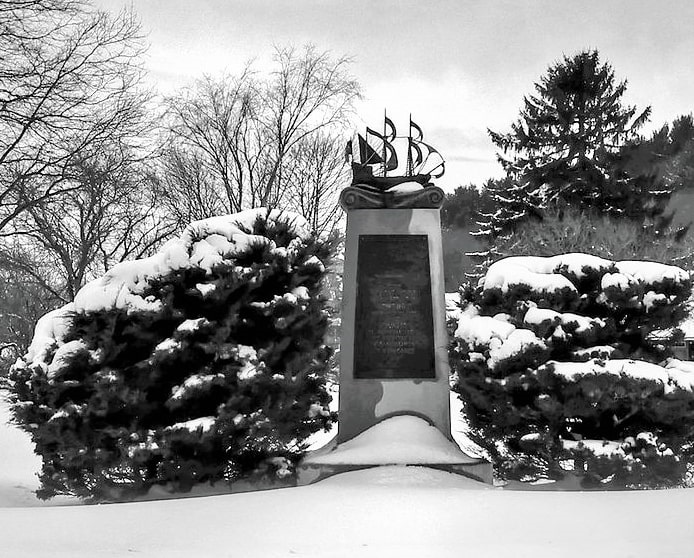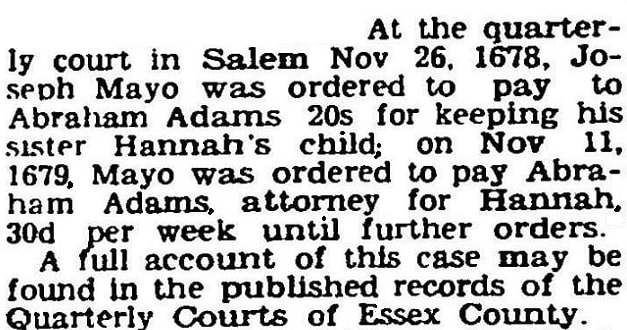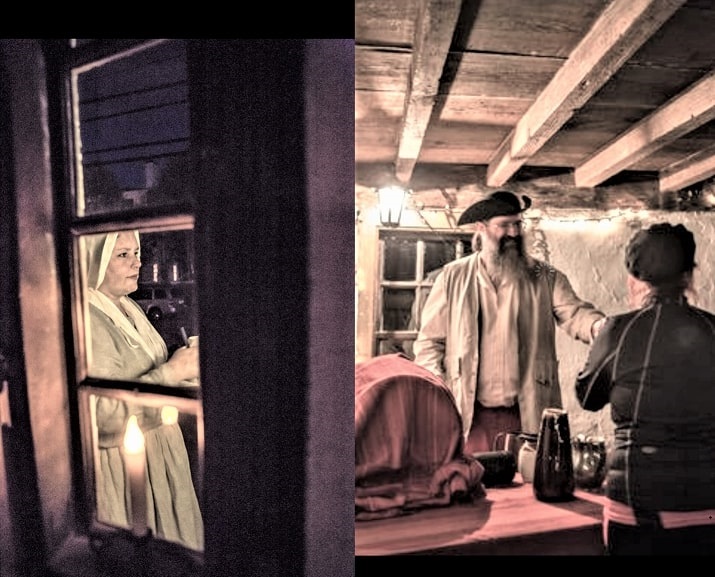Introduction: In this article, Melissa Davenport Berry continues her series exploring an aspect of Puritan life in the 17th century Massachusetts Bay Colony that is often overlooked: paternity and child support cases. Melissa is a genealogist who has a blog, AnceStory Archives, and a Facebook group, New England Family Genealogy and History.
In my last article, I wrote about a man in 17th century Massachusetts who fathered two children with two different, unwed women within the same year (see: Paternity Court Drama in 17th Century America).
Today I continue with one of these cases, the Adams v. Mayo paternity case cited in the “Records and Files of the Quarterly Courts of Essex County V. 7” (RFQCEC) available online through the University of Virginia.
As explained in my last story, Hannah Adams filed a paternity suit against Joseph Mayo for child support in Newbury, Massachusetts. The court drama heated up, plus Mayo was later charged with another paternity case after it was discovered he had slipped in between the sheets with Hannah’s stepsister Sarah Short!
Many of the names of families involved in these paternity cases are listed on the Founders’ Monument located on the lower green in Newbury, Massachusetts.

To recap: Hannah’s brother Jacob Adams initiated the paternity suit against Joseph Mayo before his sister Hannah could be charged with fornication – and possibly suffer the whip. Jacob was familiar with the law on this subject because he himself had been charged with fornication before marriage with his wife on 9 June 1677 (P. 344 RFQEC V. 6). He had been ordered to pay up or be severely whipped.
In May 1678 Jacob slapped a paternity suit against Mayo. The paternity case of Mayo/Adams is cited in the “Records and Files of the Quarterly Courts of Essex County V. 7” (RFQCEC) available online through the University of Virginia.
Joseph Mayo initially denied his guilt, but the matter was pursued because Jacob fronted the bond for Mayo to appear in the next court session. It didn’t go well for Joseph.

Another of Hannah’s brothers, Abraham, acted as legal counsel, and Mayo was ordered to pay legal fees and child support for the forthcoming child. Hannah gave birth to her daughter Joanna on 12 October 1678. The next month, Mayo “was ordered to pay to Abraham Adams 20s for keeping his sister Hannah’s child.” A year later, Mayo was further ordered by the court “to pay Abraham Adams, attorney for Hannah, 30d per week until further orders.”
In Daughters of Eve: Pregnant Brides and Unwed Mothers in Seventeenth Century Essex County, Massachusetts, author Else L. Hambleton suggests that the Adams’ assertive stance worked. Hannah had child support secured before the baby was born. It took funds and her brothers’ assistance to make it a success.
Hambleton also noted that Mayo possessed a poor sexual reputation – in other words, he was a dirty dog. Hannah’s brother Isaac testified against Mayo, alluding to his brazen sexual desires toward his sister, and claimed that Mayo came to the Adams’ home and “desired deponent to carry sister Hannah to Thomas Thurlow’s.” Take what you will from that.
According to Hambleton, another witness, Mary Higginson, testified just how bold Mayo could be: “The last Christmas day at night Joseph Mayo came to my bed and would have been naught with me, till I threatened him I would mark him that he might be known from honest men.”
In the photo below, Bethany Groff and her husband James Dorau feature in the paternity scandal cases of Hannah Adams and Sarah Short at “Tales and Ales” in Newbury, Massachusetts, hosted by Historic New England. Is that Hannah waiting at the window for Master Joseph? And let’s not forget Dorau’s famous line when serving: “Hold the Mayo!”

But the drama was not over! Daddy Mayo was caught with his pants down again. Another case in the court docs lists Hannah’s stepsister Sarah Short.
On 22 May 1679, Henry Short Jr. complained against Mayo for fornication with his sister Sarah Short, and gave bond to prosecute at Salem court.
Sarah was the daughter of one of Newbury’s wealthiest men, Henry Short, who died in 1673. Sarah’s mother, Sarah Glover Short, later married Hannah’s father, Robert Adams, in 1677. Hannah and Sarah became stepsisters. Mayo would only have to hop over to the next bed chamber in the same house, and no doubt he was privy to Sarah’s inheritance from her father’s estate – worth a hefty sum.
The Short’s suit against Mayo was dropped because he united with Sarah in a shotgun wedding seven days later, on 29 May 1679 – which included a large dowry. On 9 July 1679, a daughter Sarah Mayo was born. Two other daughters followed.
Hannah Adams found a new love in William Wareham, and tied the knot; however, a baby came too soon, and the couple were charged with fornication before marriage (P. 20 RFQEC V. 9).
The Mayo children bred from Newbury’s early lasses make up many generations of the sons and daughters of the first Newbury settlers. Stay tuned: I have found them in GenealogyBank’s Historical Newspaper Archives.
Related Articles:

Nice work again. I’ll take what I will from that. Reminds me that Hannah was a common name way back, so popular that my great-great-grandfather married a Hannah Kelleher who died in childbirth, after which he married another Hannah Kelleher who also passed away. So he married again. Yes, another Hannah Kelleher. As far as I could tell, two were cousins and the other was unrelated. Some day we should toast them in Tales & Ales –- and “Hold the Mayo!”
Thanks Jack! Hannah was a common name and it can make for some confusion for genealogy research when the name is repeated for several generations! Yes, I hope to visit Newbury soon and make merry at a Tales and Ales Bethany Groff Dorau does a splendid job and always serves up good scandal!
Bethany Groff Dorau does a splendid job and always serves up good scandal!
Melissa, these are wonderful stories. I am actually researching a fornication charge against Sarah Averill in 1641. She was charged with Thomas Wardall, who fled Essex County. Sarah did appear in court at Ipswich and was sentenced to be whipped. However, there is not any information offered in Records and Files of Quarterly Courts of Essex County. Depositions regarding this case are not in those collections. So, I emailed the Massachusetts State Archives and they did not have any further documents. I have not found any evidence of a child born to Sarah in the 1640s. Her only child of which I know was with John Wildes, her husband, whom she bore two years after they married. Is there another research avenue I can pursue to find out what came of this case? Feel free to email me directly if you prefer.
Hi Mary. Thanks for reaching out, and I sent you an email. I hope to return to these lost babe stories probably late Spring! So stay tuned!